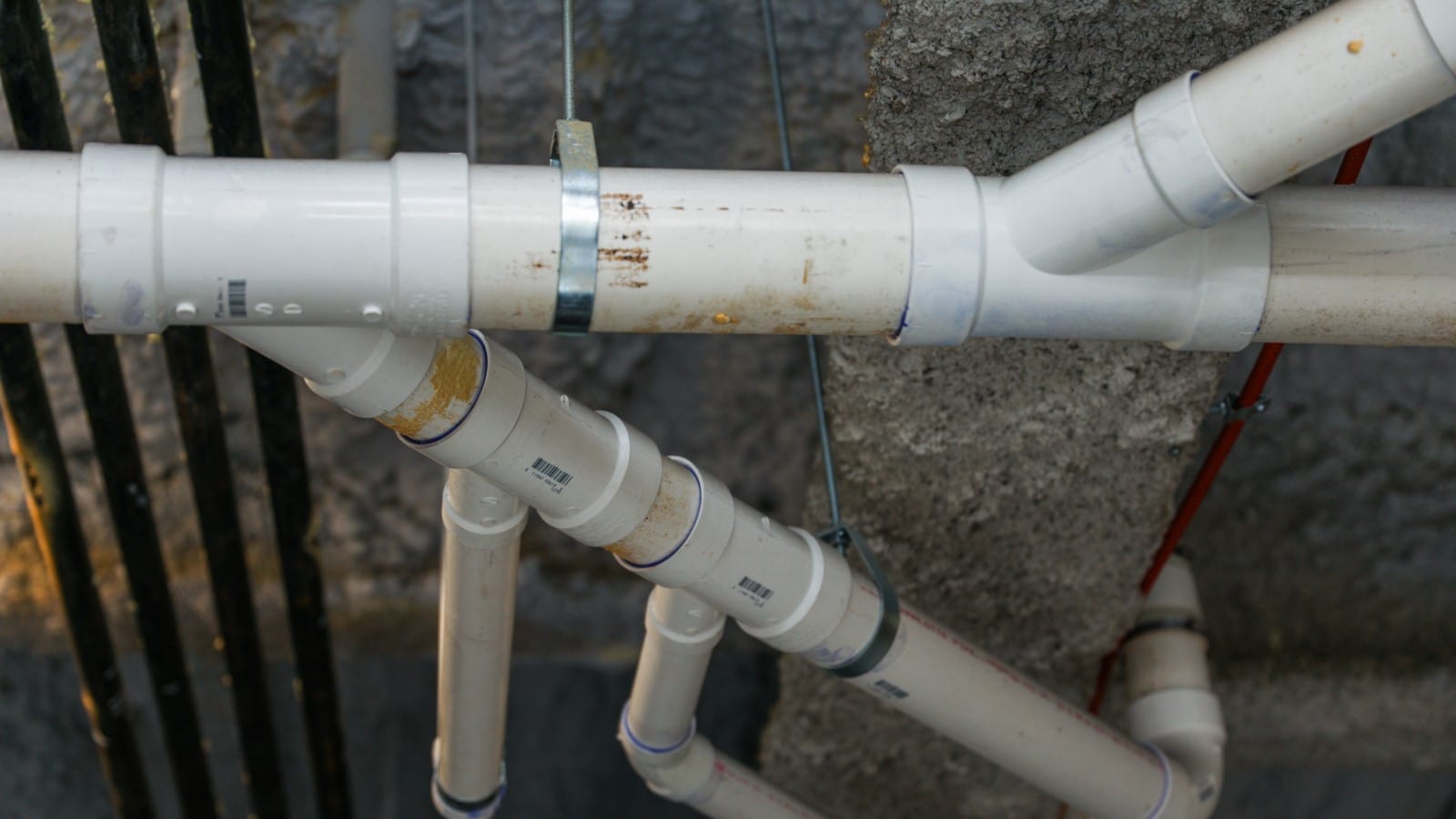Are you in the market for a new water heater for your home and considering going tankless? Understanding how a tankless water heater works and choosing the right one can be a game-changer regarding efficiency, cost, and comfort.
This guide will walk you through everything you need about tankless water heaters, from how they function to the finer points of water temperature control, installation considerations, and choosing between gas or electric units. Whether replacing an old heater or installing a new system, this guide will help you make an informed decision and ensure a smooth transition to your new tankless water heater.
What is a Tankless Water Heater?
Unlike traditional tank water heaters, a tankless water heater heats water directly without using a storage tank. When a hot water tap is turned on, cold water travels through a pipe into the unit, and either a gas burner or an electric element heats the water. This process ensures that hot water is available instantly and continuously.
Key Advantages:
- Endless Hot Water: Never run out of hot water again, no matter how much you use.
- Energy Efficiency: Only heats water as needed, reducing energy consumption.
- Space Saving: Compact size frees up space in your home.
- Longevity: Lasts longer than traditional tank water heaters.
Choosing the Right Type of Tankless Water Heater
Tankless water heaters come in various types, each with unique features and suitability for your home’s specific needs. Let’s explore the different types, including gas, electric, propane, and solar models, to help you make an informed choice.
Gas Tankless Water Heaters
- Powerful and Efficient: Ideal for larger households with high hot water demand.
- Requires Venting: Needs proper venting to expel exhaust gases.
- Energy Saving: Often more energy-efficient than electric models.
- Heats Water Quickly: Capable of heating a large volume of water quickly.
- Temperature Control: Offers precise control over the incoming water temperature.
- Installation Considerations: These heaters may require upgrades to existing gas lines.
Electric Tankless Water Heaters
- Compact and Versatile: Suitable for smaller homes or point-of-use applications.
- Easy Installation: Generally easier and cheaper to install than gas models.
- No Venting Required: It does not require an external venting system.
- Energy Efficiency: Utilizes less energy for heating small volumes of water.
- Temperature Consistency: Maintains consistent water temperature.
- Lower Flow Rate: Best for applications with lower hot water flow demands.
Propane Tankless Water Heaters
- High Performance: Offers similar benefits to natural gas models.
- Fuel Availability: A great option where natural gas is not readily available.
- Energy Efficient: Comparable efficiency to natural gas models.
- Suitable for Remote Locations: Ideal for homes without access to natural gas.
- Requires Fuel Storage: Needs a propane tank and regular refueling.
Solar Tankless Water Heaters
- Environmentally Friendly: Utilizes solar energy, reducing carbon footprint.
- Energy Savings: Can significantly reduce energy costs in the long term.
- Requires Backup System: A gas or electric backup is often needed for cloudy days.
- Higher Initial Investment: Involves an upfront cost for solar panels and installation.
- Limited by Location: Efficiency depends on the amount of sunlight available.
Condensing vs. Non-Condensing Tankless Water Heaters
- Condensing Tankless Water Heaters: Utilize exhaust gases to preheat incoming water, achieving higher efficiency. It is ideal for colder climates and where energy savings are a priority.
- Non-Condensing Tankless Water Heaters: More straightforward in design and installation, suitable for milder climates and where initial cost is considered.
When choosing a tankless water heater, consider the type that best suits your home’s hot water demands, fuel availability, and installation requirements.
Each type offers unique benefits, from the energy efficiency of gas and propane models, the compact design of electric units and the eco-friendliness of solar options.
Remember, a successful tankless water heater installation in your home depends on the heater itself and factors like water flow, incoming water temperature, and proper installation, all of which contribute to its overall performance and efficiency.
Determine How Much Hot Water You Need
Consider your household’s peak hot water demand to choose the right tankless water heater size. Calculate the flow rates (GPM – gallons per minute) of all fixtures and appliances that may use hot water simultaneously. This calculation will help you understand the required capacity of your tankless water heater.
Factors to Consider Before Buying a Tankless Water Heater
When selecting a tankless water heater for your home, you must evaluate various factors to ensure you choose the best unit for your needs. Consider these key aspects:
Number of Bathrooms and Kitchen Usage
- High Usage Needs: More bathrooms increase the demand for hot water, especially during peak times.
- Simultaneous Use: Homes with multiple bathrooms require a higher GPM (gallons per minute) capacity.
- Kitchen Demand: Frequent kitchen activities like dishwashing can significantly add to hot water usage.
Household Size
- Larger Families: Bigger households typically have a greater demand for hot water, necessitating a more robust tankless unit.
- Guests and Gatherings: Consider occasional increased demand, such as when hosting guests.
Types of Appliances
- Dishwashers and Washing Machines: These appliances often require a higher water temperature, impacting your heater’s capacity.
- Efficient Showerheads: Modern showerheads with lower GPM can reduce overall water demand.
- Point-of-Use Needs: Point-of-use tankless water heaters can be an efficient solution for isolated applications.
When installing a tankless water heater in Rockwall, TX, it’s essential to consider local climate, water hardness, and specific building codes or regulations. Consult with local experts like Intown Plumbing to ensure your installation meets all requirements and is optimized for your home’s conditions.
Installation Tips for Tankless Water Heaters
Installing a tankless water heater is critical to its efficiency and longevity. Follow these tips for a successful installation:
Choose a Professional Installer
- Expertise Matters: Professional installers ensure your tankless water heater is installed safely and efficiently.
- Compliance with Standards: Experts are familiar with local codes and can help your installation comply with them.
Consider Water Hardness
- Scale Buildup: Hard water can lead to scale accumulation in your tankless unit, affecting performance and lifespan.
- Use of Water Softeners: In areas with hard water, installing a water softener can protect your tankless heater.
Understand Local Regulations
- Building Codes: Familiarize yourself with local building codes to ensure your installation meets all legal requirements.
- Permits and Inspections: Some locations require permits and inspections for water heater installations.
Additional Considerations for Tankless Water Heater InstallationGas, Electric, or Propane Options
- Gas Water Heaters: These require venting and are suitable for high-demand homes.
- Electric Water Heaters: Ideal for smaller homes or supplemental heating; require no venting.
- Propane Heaters: A good option when natural gas is unavailable; similar performance to gas heaters.
Outdoor vs. Indoor Installation
- Outdoor Tankless Water Heaters: Eliminate the need for venting but require weatherproofing.
- Indoor Installation: Requires venting (for gas models) and access to power and water lines.
Tankless Heater Capacity
- Size Matters: The right size of a tankless water heater ensures you never run out of hot water.
- Flow Rate and Temperature Rise: Calculate the flow rate and temperature rise needed based on your home’s water usage.
Whole-House vs. Point-of-Use
- Whole-House Tankless Water Heaters: Provide hot water for the entire home.
- Point-of-Use Heaters: Dedicated units for specific areas, like a bathroom or kitchen.
Choosing the right tankless water heater requires careful consideration of your home’s specific needs, from the number of bathrooms and appliances to the type of fuel available and the local water conditions. By considering these factors and following the proper installation guidelines, you can ensure that your tankless water heater provides efficient, on-demand hot water suited to your household’s demands.
Maintenance for Longevity
Regular maintenance ensures your tankless water heater’s efficiency and longevity. This includes annual servicing, checking for scale buildup, and ensuring venting systems (for gas models) are clear and functioning properly.
Maintenance Checklist:
- Annual Inspection: Have a professional check your unit yearly to ensure it’s functioning correctly and efficiently.
- Descale: Remove mineral buildup, especially in areas with hard water, to maintain efficiency and prolong the unit’s life.
- Ventilation: Regularly check and clean vents in gas-powered models to ensure safe and efficient operation.
- Check Water Flow: Regularly monitor the water flow to ensure your tankless unit is operating at the optimal flow rate.
- Temperature Accuracy: Verify that the water temperature from your heater matches the desired settings, adjusting as necessary.
- Energy Efficiency Evaluation: Compare your unit’s performance with the latest models in a tankless water heater buying guide to see if an upgrade is beneficial.
- Point-of-Use Inspection: For homes with point-of-use tankless water heaters, ensure each unit functions well and provides the right amount of hot water.
- Fuel Source Check: For gas and propane-powered tankless water heaters, ensure the fuel source is connected properly and functioning safely.
- External Inspection: For outdoor water heaters, check for any environmental wear and tear that could affect their performance.
- Emergency Procedures: Familiarize yourself with emergency shut-off procedures and ensure all relevant parts are accessible and in good condition.
These steps will help ensure your tankless water heater, whether a whole-house or point-of-use model, continues to provide efficient and reliable hot water for your home. Regular maintenance is vital to maximizing the lifespan and performance of your unit.
Expert Tips on How to Choose a Tankless Water Heater for Your Home
In closing, embracing a tankless water heater for your Rockwall, TX home signifies more than just an upgrade from the conventional storage tank water heaters. It’s committed to efficiency, space-saving, and tailored hot water solutions. Whether you choose a tankless gas, electric, or solar-powered model, the benefits are clear and impactful. To encapsulate the essence of our comprehensive guide, here’s a summary of crucial points to remember as you embark on this journey of choosing the perfect tankless water heater:
- Understanding Tankless Technology: Recognize how tankless water heaters use advanced methods to heat your water more quickly and efficiently than traditional models.
- Types of Tankless Water Heaters: Choose from gas-powered, electric, propane, or even outdoor tankless water heaters, each designed to suit specific needs.
- Sizing Matters: Select the right tankless water heater size based on your home’s hot water demand to ensure you never wait for hot water again.
- Energy Efficiency: Tankless heaters only heat water when needed, reducing energy costs and enhancing efficiency.
- Installation and Local Considerations: Engage professional installers familiar with Rockwall, TX regulations, and consider local climate and water conditions.
- Regular Maintenance: Commit to routine maintenance, including descaling and ventilation checks, to prolong the life of your heater.
- Tailored Solutions: Whether it’s a whole-house system or a point-of-use tankless water heater, there’s one for every home.
Remember, the right tankless water heater promises on-demand hot water and aligns seamlessly with your lifestyle and home’s needs. It’s not just about choosing a new appliance; it’s about investing in the best solution for your home. This guide to selecting a tankless water heater should serve as your compass in navigating the options and making an informed decision for your household’s comfort and efficiency.





